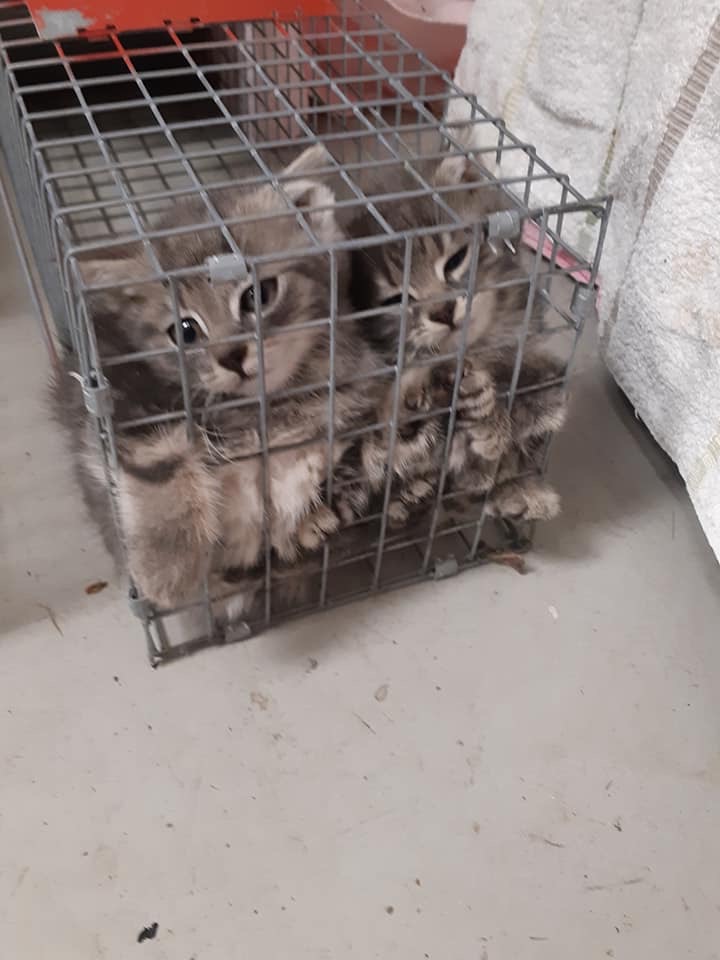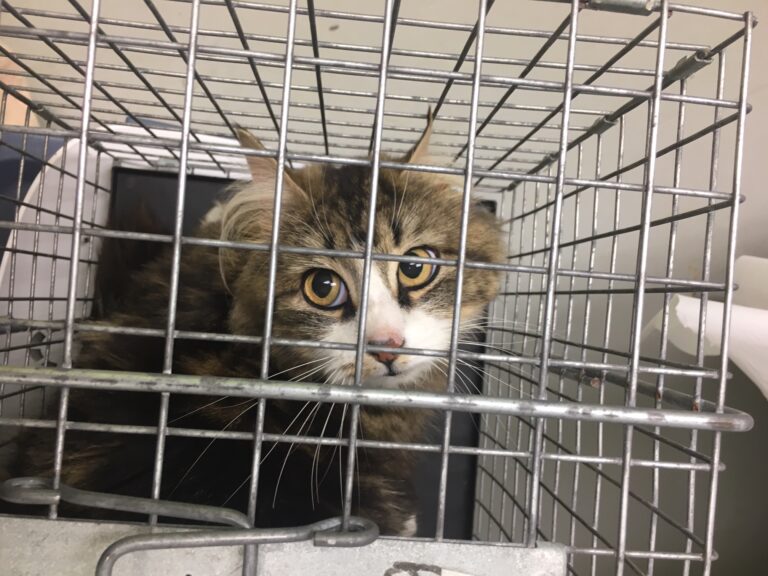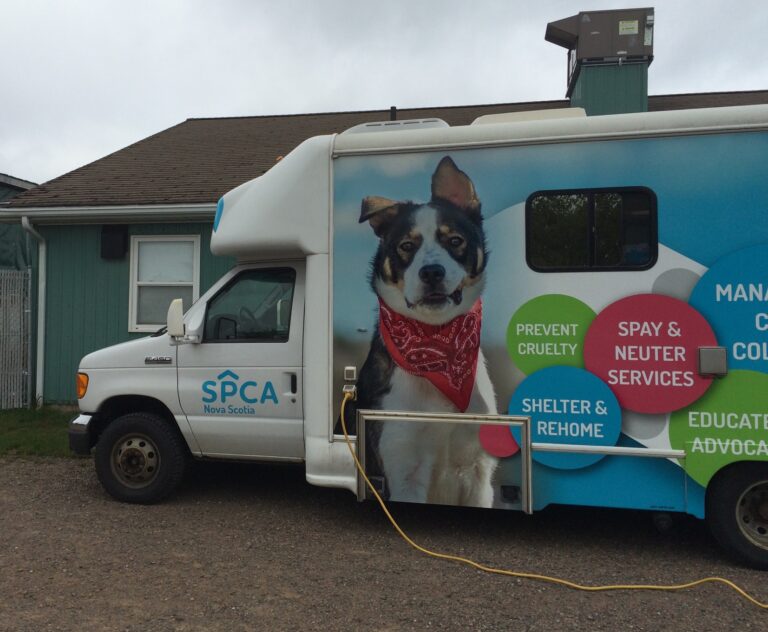Mobile Spay & Neuter
Trap Neuter Return (T.N.R.)
Launched in summer of 2016, the Mobile Clinic travels Nova Scotia providing spay and neuter services for feral cats.
The Nova Scotia SPCA believes that successful management of the feral cat population can be done through Trap-Neuter-Return (T.N.R.) Population Control Programs. The objective of Trap-Neuter-Return is to gradually eliminate colonies by a process of “aging out.” Feral cats are humanely trapped, neutered, ear tipped and then returned to their colony.
This Mobile Clinic was made possible through generous bequests by the late Dr. Susan Roberts, and Eleanor Dyke. The day to day expenses and operating costs of the mobile clinic comes from fundraising and bequests, donations are always needed to help us continue to operate!
Need Help? That’s why we are hear, don’t wait to contact us
TNR Request Form
of some colonies are kittens

average number of cats per surgery day

kilometers traveled in just 2 years
How Does T.N.R. work?
Feral cats are trapped using humane (live) traps, they are then spayed or neutered and released within one day of recovering. The process can be stressful for them but having them spayed or neutered provides them many benefits to their lives to the community.
Cats who are spayed or neutered are better neighbors. Citizens will find less spraying and reduced smell from intact males, less fighting over female cats and elimination of new kittens being born. Over time a feral colonies numbers will reduce through natural attrition.
Kittens that are within the critical window for domestication are removed, socialized and adopted. Returning the sterilized cat to its colony is crucial to reducing the colony size as new members will not join a feral cat colony with a stable number of neutered cats. Trap-Neuter-Return Population Control Programs maintain the colony in a healthy and secure state leading up to the eventual attrition of members. The Nova Scotia SPCA believes that not feeding feral cats is not the solution because starving cats will still mate. Concerned residents who are interested in providing food for or managing colonies are encouraged to contact us, and together with local Rescue groups we can provide advice and support.
For more detailed information on TNR process and feral (community) cats check out Alley Cat Allies.
Position Statement on Feral Cats
The Nova Scotia SPCA believes ignoring the feral cat problem is inhumane. The Nova Scotia SPCA advocates the humane treatment of all cats including those that are stray and those that have become feral. A “feral” cat is one that has never had contact with humans and that is the offspring of abandoned or unaltered free-roaming cats. Feral cats are at least one generation removed from domestication and therefore, if not sufficiently socialized with humans by a certain age – typically 6 weeks old – may not suitable candidates for adoption. Recognizing the over-population crisis of companion animals in the Nova Scotia, the Nova Scotia SPCA supports public and private humane efforts in controlling feral cat colonies and their population.
Volunteers & Donations Needed
Trap Neuter Return initiatives requires the support of the community.
Volunteers spend countless hours using live (humane) traps to gather cats needing spay/neuter to bring to our mobile spay/neuter days.
You can help by volunteering your time. Volunteers will be needed to assist with trapping, transporting cats, and caring for cats while they recover from surgery. Apply to become a volunteer through our website here.
Donations are also required, especially cat food and monetary donations. Cat food donations can be dropped off at any of our Shelters or contact us for other drop off locations.
Build and donate an outdoor shelter to keep feral cats warm this winter season! Some options can be found here: https://www.alleycat.org/resources/feral-cat-shelter-options-gallery/
Mobile Spay Neuter Clinic Wish List:
- Live (Humane) traps any size. Available at any hardware store.
- Transfer cages. Available online through WCS Canada
- Wet cat food
- Cans of Tuna, Chicken or Sardines used when setting traps to catch a cat.
- Donations of Dry cat food to support Caretakers of a colony.
- Cat Carriers (new or used)
- Large wire dog crates (for temporary housing of cats awaiting spay/neuter surgery).
- Monetary donations to sponsor a spay/neuter surgery. Donate online today
